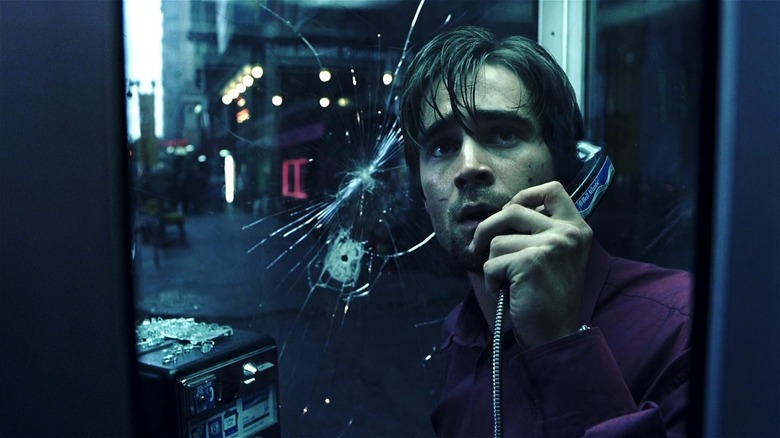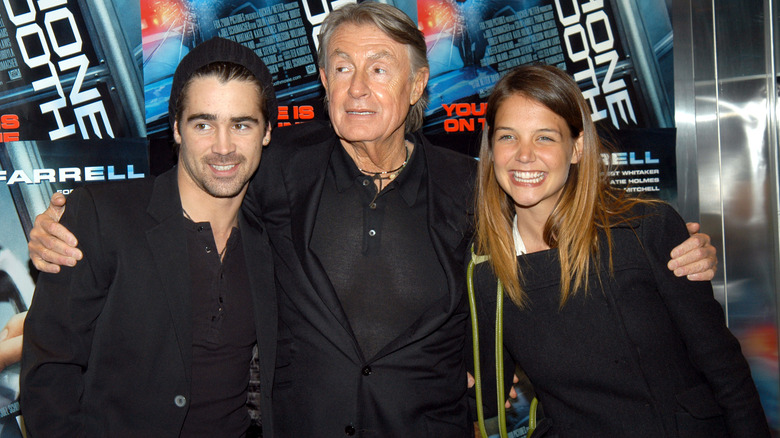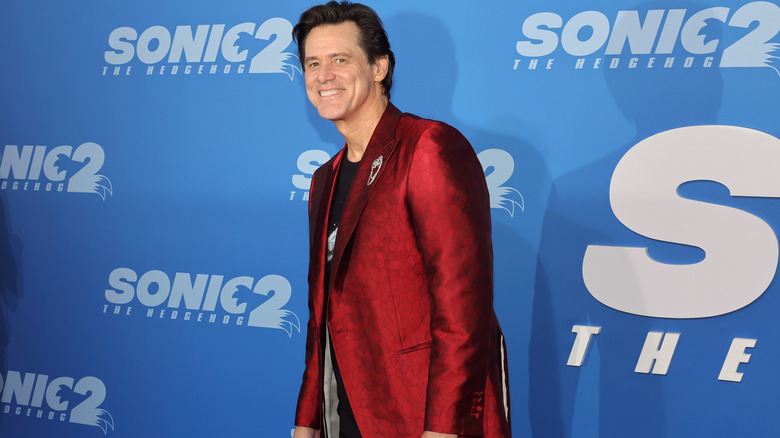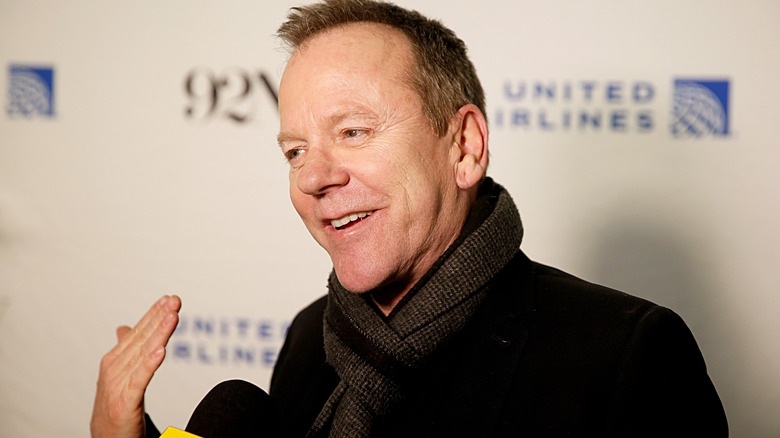Phone Booth: The Movie's Developmental Hell, Ending & Why Jim Carrey Quit Explained
Back in 2002, one of the most unusual and memorable mainstream thrillers to come out of Hollywood was released: "Phone Booth," directed by Joel Schumacher and starring Colin Farrell. The title is not figurative or metaphorical but a literal description of where the bulk of the movie is set, as Farrell's hot-shot publicist Stu Shepard is trapped inside a New York City phone booth by a menacing psychopath (Kiefer Sutherland) equipped with a sniper rifle and a knack for teaching lessons.
The film, written by genre screenwriting king Larry Cohen, originated with an idea the writer had in the 1960s when he pitched it to filmmaker Alfred Hitchcock. As Farrell told Yahoo for a feature on the film's 20th anniversary, neither Hitchcock nor Cohen could devise a plausible reason for their hero to be trapped inside a phone booth for an entire movie. "People were trying to crack this Larry Cohen script and see how it could be done, and how it could be done without being an exercise of cinematic tedium, because it was all set in one place."
Why was the Phone Booth movie in developmental hell for so long?
That, in essence, was why "Phone Booth" took so long to develop, because neither Larry Cohen nor Alfred Hitchcock were able to solve the seemingly simple narrative problem: what could possibly force a man to stay in a phone booth against his will? Sometime in the late '90s, Cohen realized a bad guy with a sniper rifle could do just that.
Once Cohen landed on the sniper idea, Hitchcock was long dead, but Joel Schumacher, fresh off his "Batman" run and looking for a new project after the dissolution of his shelved "Batman Unchained" sequel, took up the reins and several different A-list stars were interested. But it was up-and-comer, Colin Farrell, having worked with Schumacher before on the military drama "Tigerland," who ended up with the job.
"Joel called me because we'd worked on 'Tigerland' together and he said, 'Listen, I have this script. Will you have a look at it?'" Farrell told Yahoo. "And I read it and loved it, and just saw it as the challenge that it became."
However, the Irish star wasn't the only one picked for the leading part, nor was Schumacher the initial pick for the director's chair.
Why did Jim Carrey quit Phone Booth & who else was considered before Colin Farrell?
Before Colin Farrell took the challenging role as the lead in "Phone Booth," Joel Schumacher developed the project with Jim Carrey in the lead role. "I had many meetings with Jim, and he was gonna do it," Schumacher told SPLICEDwire. But Carrey dropped out, which seemed natural to the filmmaker since he considered it a strange fit in the first place: "I had always thought it was odd that he wanted to do it ... And then he got cold feet and I understood — I really did. He was uncomfortable with the role."
Larry Cohen's script got a lot of attention in Hollywood before it ended up in Schumacher's hands. Filmmakers like Steven Spielberg and Michael Bay were interested, as were stars like Tom Cruise, Will Smith, Anthony Hopkins, Robin Williams, Nicolas Cage, and Mel Gibson (who was also interested in possibly directing the film himself). But fans of the movie are probably in agreement that nobody could have done better than Farrell.
Phone Booth: What happened at the end with Kiefer Sutherland's sniper?
Of course, no matter who was stuck in the phone booth in "Phone Booth," the whole movie falls apart without a suitably menacing voiced bad guy behind the sniper scope. For the role of "The Caller," Joel Schumacher secured Kiefer Sutherland, who had also worked with the filmmaker multiple times before in movies like "The Lost Boys" and "Flatliners." Sutherland has one of the most distinctive voices in Hollywood, and he gives The Caller an intimidating, gravelly edge, even as viewers, just like Colin Farrell's character in the movie, never see his face.
"Phone Booth" ends with the cops finally tracing The Caller to his sniper's nest, only to find a dead body that they believe to be the criminal, but who Stu recognizes as a pizza delivery guy from the beginning of the movie. Then, in his only actual on-screen appearance in the film, Sutherland's Caller visits Stu as he's being carted away in an ambulance, warning him that he'll be back if the honesty he was forced to embrace over the course of the movie doesn't last, he and his sniper rifle will be back again. Then, the titular phone booth is shown ringing again ... could The Caller still be at work on another victim?
Whether this could have been intended as leaving the door open to a sequel or just a fun stinger ending to leave the audience on a high-energy note isn't known. But perhaps it isn't too late for The Caller to return in "Phone Booth 2," assuming there are still any operational phone booths anywhere in the world.



